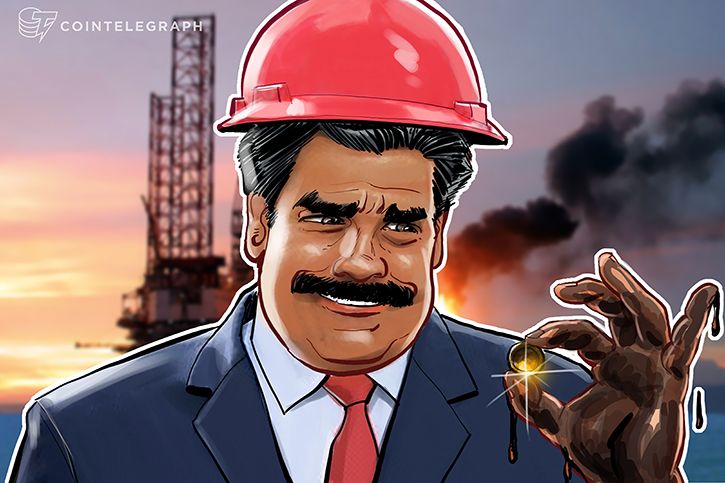Venezuelan President Nicolas Maduro has asked all 10 countries in the Bolivarian Alliance for the Peoples of Our America (ALBA) to work together on the creation of the Petro, his proposed oil-backed cryptocurrency, according to local sources.
During a meeting of ALBA on Jan. 12, Maduro had announced:
“I put it on the table, brother governments of the ALBA, the proposal of the cryptocurrency of the Petro, so that we can take it on as one of the projects of integration of the 21st century in a bold way, but also in the manner of a creator and a creative.”
Maduro declared his intention to create the Petro in early December, and on Jan. 6 he ordered the issuance of the first 100 mln petros, each backed by one barrel of oil. The president has already set aside 5 mln barrels of Venezuelan oil in preparation, with the currency set to launch in 6 weeks in the form of an auction, as it will be pre-mined.
However, on Jan. 9, the Venezuelan parliament declared the Petro an illegal currency. The parliament has stood in opposition to President Maduro since his Socialist Party lost its majority in 2016, and has been vocal against what they see as a fraudulent currency.
Parliament Deputy Williams Dávila said, according to newspaper El Universal, that the Petro’s creations only serves to:
“Evade financial sanctions, [and is] openly violating the Constitution, and legitimizing illicit transactions.”
Venezuela, a country facing both hyperinflation and EU and US sanctions, has seen a massive amount of Bitcoin use among its population, which is choosing to use digital currency over the failing government-issued Bolivar. Some see the high volume of Bitcoin use in Venezuela as the start of one of the first “Bitcoinizations” of a sovereign state.
While the upcoming launch of the Petro is uncertain due its tenuous political context, the idea of using cryptocurrency for oil trading had come up before in 2016, when the strained relationship between the US and Saudi Arabia caused alarm over oil market stability.


